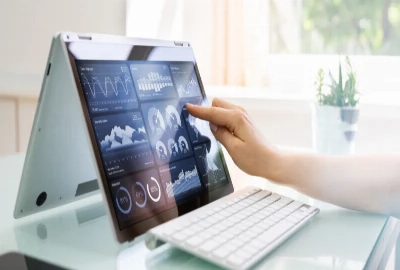Digital Twins: When Your Virtual Self Knows You Better

In the age of artificial intelligence and big data, one concept is quietly reshaping how we live, work, and even think: the digital twin. Originally used in industries like aerospace and manufacturing to create virtual replicas of machines for testing and optimization, the idea has now crossed over into human life. A digital twin of a person is a detailed virtual model built from real-world data, tracking everything from health metrics and purchasing habits to emotional patterns and lifestyle choices.
This raises a fascinating—and unsettling—question: what happens when your digital twin knows you better than you know yourself? Imagine a virtual replica that predicts when you’ll get sick, what career move will benefit you most, or even when you’ll feel stressed before you notice it yourself.
Digital twins are no longer science fiction. They’re emerging in healthcare, fitness, smart cities, and even workplace productivity. But with this power comes profound challenges: privacy risks, questions of ownership, and the blurring line between human identity and digital simulation.
In this article, we’ll explore what digital twins are, how they work, the opportunities they bring, and the ethical dilemmas they create. Most importantly, we’ll consider whether your virtual self might one day outpace the real you.
What Are Digital Twins? (From Machines to Humans)
The concept of a digital twin originated in engineering. When NASA faced challenges maintaining spacecraft in the 1970s, engineers created virtual models to simulate conditions, detect faults, and test solutions remotely. Since then, industries from aviation to automotive have adopted digital twins to reduce costs and improve efficiency.
Applied to humans, a digital twin becomes a data-driven replica of your life. It gathers information from sources such as:
Wearable devices that track heart rate, sleep cycles, and activity.
Smartphones and apps monitoring location, behavior, and habits.
Medical records, genetic data, and health history.
Online interactions, purchases, and browsing behavior.
Sensors in smart homes and connected environments.
By feeding this data into AI models, your digital twin creates a dynamic, evolving simulation of you. It doesn’t just store facts—it predicts outcomes. For example, a digital twin could anticipate a health issue based on subtle changes in your biometric data or recommend a personalized financial plan based on your spending patterns.
The leap from machine to human twins signals a shift in how we understand ourselves. Instead of relying solely on intuition, self-awareness, or professional advice, people may increasingly turn to their digital twins for insights. This could make life more efficient and personalized—but it also opens the door to over-reliance and potential manipulation.
Digital twins are not passive tools. They are active participants in shaping decisions, creating a future where your virtual self becomes both a mirror and a guide.

The Benefits of Digital Twins: When Your Virtual Self Helps You Thrive
While the idea of a virtual replica can sound dystopian, the potential benefits of digital twins are significant. In many ways, your digital twin virtual self could enhance your health, productivity, and quality of life in ways that human intuition alone cannot.
Healthcare Transformation
One of the most promising applications is in medicine. Imagine a doctor not just treating your symptoms but consulting your digital twin for predictive insights. By analyzing genetic predispositions, lifestyle habits, and biometrics, digital twins can forecast illnesses before they occur. This enables preventive care, early diagnosis, and highly personalized treatment plans. For patients with chronic diseases, digital twins can simulate how different treatments might work, reducing trial-and-error approaches.
Smarter Living and Productivity
Your digital twin can act like a life coach. It might suggest changes to your routine to improve sleep quality, highlight patterns in stress levels, or recommend better diet choices. In workplaces, digital twins can analyze workflows and suggest ways to increase efficiency without burning out employees.
Personalized Education and Training
Students and professionals could benefit from digital twins that track learning progress and recommend tailored strategies for mastering new skills. Instead of generic education models, learners would receive insights based on how they best absorb and apply knowledge.
Sustainability and Smart Cities
On a larger scale, digital twins of individuals feed into digital twin models of entire cities, helping urban planners predict traffic flows, energy consumption, and resource needs. This creates smarter, more sustainable environments.
Enhanced Decision-Making
Because your digital twin can process more data than you could consciously handle, it offers a second perspective. From choosing investments to planning career moves, it provides a data-backed companion for decision-making.
In essence, digital twins hold the promise of making humans healthier, more efficient, and better prepared for the future. But these advantages come at a cost—especially when it comes to privacy and autonomy.

The Risks and Ethical Dilemmas of Living with a Digital Twin
While the potential of digital twins is inspiring, the risks are equally concerning. When your virtual self knows you better than you do, who controls that knowledge—and how it’s used—becomes critical.
Privacy and Data Ownership
Your digital twin relies on massive amounts of personal data. But once collected, who owns it—you or the company creating your twin? If corporations or governments control your digital twin, they essentially control your identity. The fear is that individuals will lose autonomy over their own digital selves.
Manipulation and Exploitation
If your twin knows your weaknesses, so will the entities that manage it. Algorithms could nudge you toward certain purchases, behaviors, or even political beliefs. Instead of empowering you, your twin could become a tool for manipulation.
Security Threats
What happens if your digital twin is hacked? Cybercriminals could access not just your personal data but an advanced simulation of your life, making identity theft far more dangerous. In extreme cases, a hijacked digital twin could even be used to impersonate you.
Dependence and Loss of Agency
Relying heavily on digital twins may weaken self-awareness and critical thinking. If people always defer to their virtual selves, they risk outsourcing too much decision-making to algorithms, blurring the line between human judgment and machine prediction.
Inequality of Access
Like many advanced technologies, digital twins may initially be available only to those who can afford them, creating new social divides. Wealthier individuals might gain better healthcare, education, and opportunities through their twins, widening gaps between rich and poor.
Ultimately, digital twins raise a fundamental ethical question: should your virtual self be a tool that serves you, or a product that serves others?

The Future of Digital Twins: Finding Balance Between Power and Control
The trajectory of digital twins suggests they will become more integrated into everyday life. But the future depends on how societies manage their risks and potential.
Regulation and Governance
Governments will need to establish clear frameworks for data ownership, consent, and security. Just as privacy laws like GDPR sought to regulate data collection, new laws may be required to ensure individuals maintain control over their digital twins.
User-Centric Models
One promising vision is a world where individuals own and manage their own digital twins, deciding what data to share and when. Blockchain technology could play a role, providing transparent and secure data ownership systems.
Human–AI Collaboration
Instead of replacing human judgment, digital twins should be designed as collaborative tools. By framing them as assistants rather than authorities, we can maintain balance between human intuition and algorithmic prediction.
Cultural and Psychological Shifts
Society will also need to adapt psychologically. Just as social media reshaped identity and communication, digital twins will redefine self-awareness. People must learn to use their virtual selves responsibly—leveraging insights without surrendering autonomy.
Opportunities for Empowerment
If implemented ethically, digital twins could empower individuals rather than exploit them. They could give people deeper insights into their health, learning, and personal growth, while providing fairer access to services and opportunities.
The future of digital twins isn’t predetermined. It hinges on the values we embed in their development—whether profit-driven surveillance dominates, or ethical empowerment prevails.





